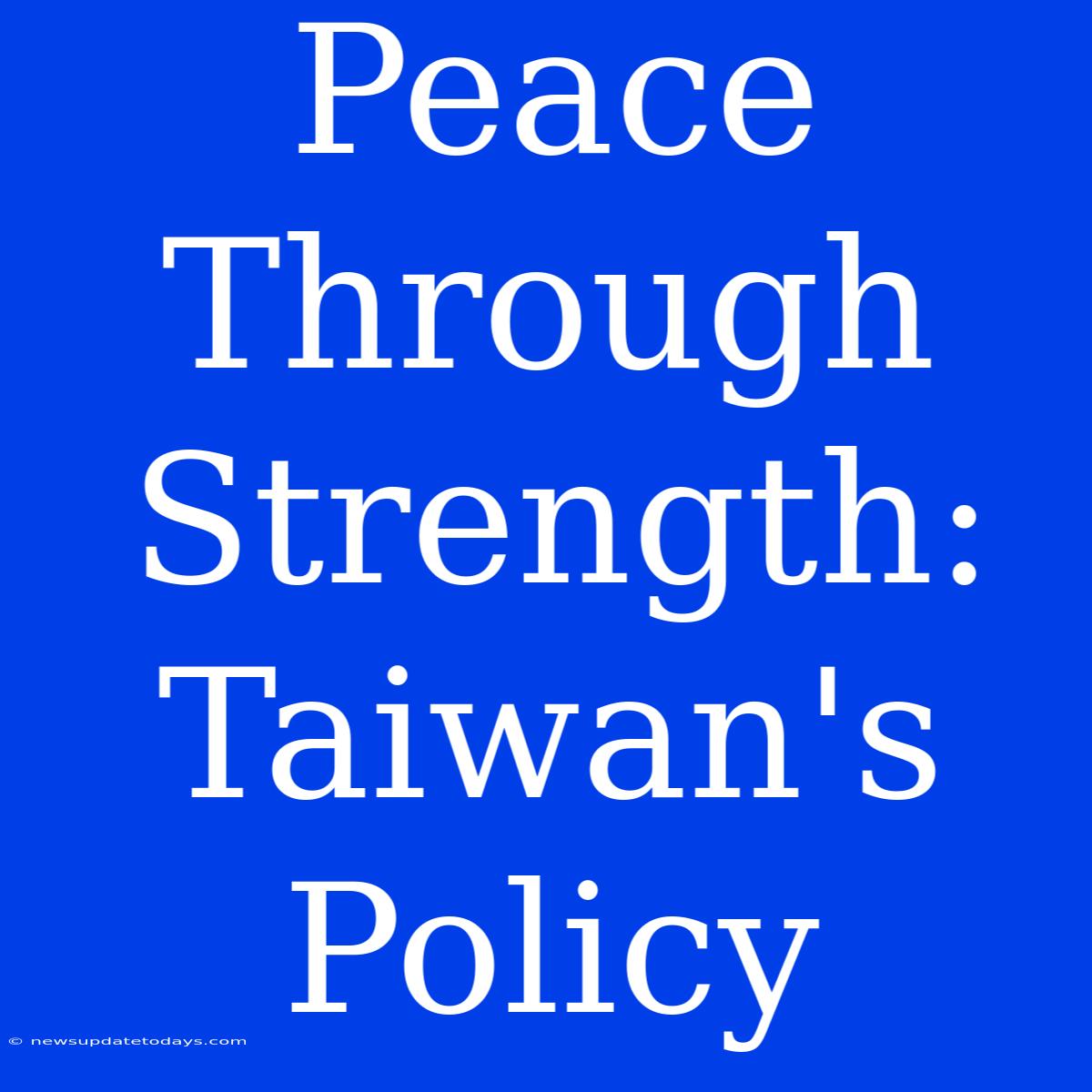Peace Through Strength: Taiwan's Evolving Defense Strategy
Taiwan's precarious geopolitical position necessitates a robust defense strategy, a core tenet of which is the "Peace Through Strength" doctrine. This approach, while seemingly paradoxical, rests on the belief that a credible military deterrent is the most effective way to prevent invasion from mainland China. This article explores the intricacies of Taiwan's evolving defense policy, its challenges, and its implications for regional stability.
Understanding Taiwan's "Peace Through Strength"
The concept of "Peace Through Strength" isn't unique to Taiwan. It's a common strategic principle, arguing that a nation's military might discourages potential aggressors. However, in Taiwan's context, this doctrine carries significant weight, given the ongoing threat of military action from China, which claims Taiwan as a breakaway province.
Taiwan's defense strategy is multifaceted and aims to:
- Deter aggression: This involves building a strong, modern military capable of inflicting significant costs on any potential invader. This includes investing heavily in asymmetric warfare capabilities, leveraging Taiwan's unique geography and technological advantages.
- Enhance resilience: Preparing for a protracted conflict, including strengthening civilian defense capabilities and developing robust supply chains, is crucial. This ensures Taiwan can withstand any attack and continue functioning even under pressure.
- Foster international support: Taiwan actively works to cultivate strong relationships with democratic nations, seeking diplomatic support and military partnerships to enhance its defensive capabilities. This includes increasing collaborations with the United States and other regional allies.
- Promote self-reliance: Reducing dependence on external sources for critical defense technologies and supplies is a key goal. This involves investing in domestic research and development, fostering indigenous defense industries, and diversifying supply chains.
Key Components of Taiwan's Defense Policy
Taiwan's military modernization focuses on several crucial areas:
- Asymmetric Warfare: Given the significant disparity in military size between Taiwan and China, asymmetric warfare strategies are crucial. This includes investing in advanced anti-ship missiles, mobile defense systems, and cyber warfare capabilities to negate China's numerical advantage.
- Indigenous Defense Industry: Taiwan is progressively building its own defense capabilities. This reduces dependence on foreign suppliers and ensures a more tailored approach to its specific needs.
- Intelligence and Surveillance: Robust intelligence gathering and surveillance systems are essential for early warning and effective response to potential threats.
- Cybersecurity: Protecting critical infrastructure and countering cyberattacks is crucial in the modern era of warfare.
Challenges and Limitations
Despite the advancements, Taiwan faces several significant challenges:
- China's Military Superiority: China possesses a far larger and more technologically advanced military, posing a substantial threat.
- Geopolitical Constraints: Taiwan's limited diplomatic recognition restricts its access to certain defense technologies and partnerships.
- Resource Constraints: Balancing the substantial investments required for defense modernization with other pressing national needs presents an ongoing challenge.
- Maintaining Public Support: Maintaining consistent public support for a strong defense posture requires clear communication and demonstration of its effectiveness.
The Future of Taiwan's Defense Strategy
Taiwan's "Peace Through Strength" policy is an ongoing evolution. Adapting to the changing geopolitical landscape and technological advancements is essential. This will require continued investment in advanced weaponry, strengthening alliances, and fostering a resilient society prepared for any eventuality. The success of this strategy is vital not only for Taiwan’s security but also for regional stability and the broader global order. The ongoing debate on the effectiveness of this strategy and the implications of its limitations will undoubtedly continue to shape the narrative surrounding Taiwan's future.

